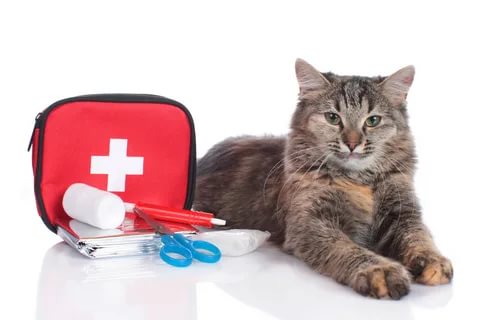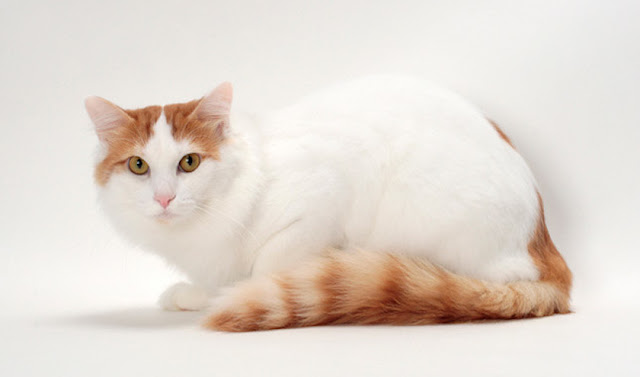Finding that your feline has worms can be a terrible encounter for any pet proprietor. Not exclusively can finding the worms be ghastly (and net), yet their quality can likewise raise some genuine worries about the soundness of your feline.
Notwithstanding, there are various protected and compelling approaches to treat worms in felines, just as an assortment of safeguard estimates you can take to reduce the risks of a reinfestation later on.
How Do Cats Get Worms?
Felines most usually contract worms in the wake of coming into contact with parasite eggs or contaminated excrement.
A feline may stroll through a zone with eggs or contaminated defecation, and since felines are regularly such exacting custodians, they will at that point ingest the eggs or fecal particles as they clean their hide and feet.
This can happen in indoor felines as effectively as it can in outside felines, especially if various felines share a litter box that is tainted with contaminated excrement.
Felines that live outside and consistently chase little rodents are likewise at a higher danger of contracting worms on the grounds that the worms can live in the muscle tissues of their prey.
Subsequent to eating a rat that is tainted with worm hatchlings, a feline can build up a worm invasion as those hatchlings create to development in the feline's digestion tracts.
Can Cats Get Worms From Dogs?
Indeed, felines can get tainted eggs from canine crap, as not all roundworms and hookworms are species-explicit. Ancylostoma braziliense hookworm can influence the two canines and felines, just as Toxascaris leonina roundworm.
Felines can likewise get tapeworms through the bug on canines on the off chance that they are living in a pervaded home or yard. In the event that a bug from a canine hops onto a feline (or the other way around) and gets ingested, there is the potential for a tapeworm invasion to create.
Sorts of Worms in Cats
The most well-known sorts of worms in felines are:
Roundworms
Hookworms
Tapeworms
Whipworms
There are likewise various less generally analyzed worms in felines that can cause genuine medical issues and can even be lethal, including:
Lungworms
Stomach worms
Bladder worms
Liver accidents
Heartworms
Manifestations of Worms in Cats
Worm invasions in felines might be totally asymptomatic (demonstrating no side effects) or serious and perilous, contingent upon the sort of worm and seriousness of the pervasion.
Normal indications of worms in felines include:
Heaving (now and then with worms in the regurgitation)
Loose bowels (with or without blood)
Hesitate dung
Weight reduction
Extended midsection
Skin sores
For the most part helpless body condition and a dull coat
As invasions deteriorate and side effects progress, you may see signs, for example,
Shortcoming
Parchedness
Pale lips and gums because of weakness
Low circulatory strain
Stun
Passing, in the most serious cases
Manifestations for Specific Types of Worms in Cats
Utilize this manual for help decide the particular sort of worm dependent on your feline's indications.
Roundworms can reason for number of major issues, for example,
Hacking/pneumonia (if hatchlings enter the lungs and develop in the respiratory plot)
Spewing (which may contain grown-up worms)
Looseness of the bowels
Expanded mid-region (developed)
Weight reduction/undesirable appearance
Intestinal check (in serious cases)
Hookworms can mess wellbeing up that include:
Skin injuries (if hatchlings enter the skin and relocate through the tissues)
Hacking (if hatchlings enter the lungs)
Loose bowels (with blood)
Dull, delay stool
Weight reduction
Helpless craving
Pale lips and gums (optional to weakness)
Whipworms can be asymptomatic, yet in more serious diseases, can cause:
Huge entrail loose bowels (with blood)
Weight reduction
Lack of hydration
Paleness
With tapeworms, your feline might not have any side effects, however you may see worm sections that resemble white grains of rice in these regions:
Nearby the rear-end
Connected to the hide around the butt-centric zone and under the tail
In/on the defecation in the litter box
Lungworm invasions can cause:
Hacking
Trouble relaxing
Pneumonia as the pervasion declines and manifestations progress
Heartworm sickness in felines can cause:
Hacking
Trouble relaxing
Absence of craving
Torpidity
Retching
Abrupt breakdown
Seizures
Abrupt passing
Bladder worm pervasions may not reason manifestations in certain felines, however serious cases may cause:
Noticeable blood in the pee
Stressing
Torment with pee
Extreme invasions of liver accidents may cause:
Expanding of the liver
Stomach widening (swollen paunch)
Are Worms Painful for Cats?
Worms in felines can possibly cause torment. The movement of hatchlings through the liver, stomach, eye, or lungs would cause inconvenience as the influenced tissues become aroused from the interruption.
This could present as:
Paunch torment, including gastritis because of aggravation of the stomach lining (likely sickness, heaving, loss of hunger, food abhorrence)
Eye disturbance (unnecessary scouring of the eye, squinting, or release)
An adjustment in your feline's breathing rate/design
The aggregation of liquid from protein misfortune can cause an expanded mid-region in certain creatures, which can be awkward because of the growing of the stomach muscles and skin.
It can likewise cause breathing issues if a lot of stomach liquid is pushing on the stomach and confining the typical lung limit with regards to appropriate relaxing.
Would humans be able to Get Worms From Cats?
Indeed, people can contract worm diseases from felines by coming into direct contact with tainted dung or soil.
Normal methods of transmission include:
Kids playing in sandboxes where felines have crapped
Strolling shoeless through tainted soil
Cultivating in soil without wearing gloves
Incidental ingestion of sullied soil or excrement can occur in people too, so great cleanliness rehearses are imperative for keeping transmission from feline to proprietor.
The most effective method to Get Rid of Worms in Cats
There are a few "home" cures that guarantee to be viable in treating and forestalling worms in felines, including garlic, apple juice vinegar, pumpkin seeds, carrots, and turmeric.
Be that as it may, endeavoring to treat your feline with over-the-counter cures or characteristic solutions for worms in felines is rarely suggested.






Post a Comment